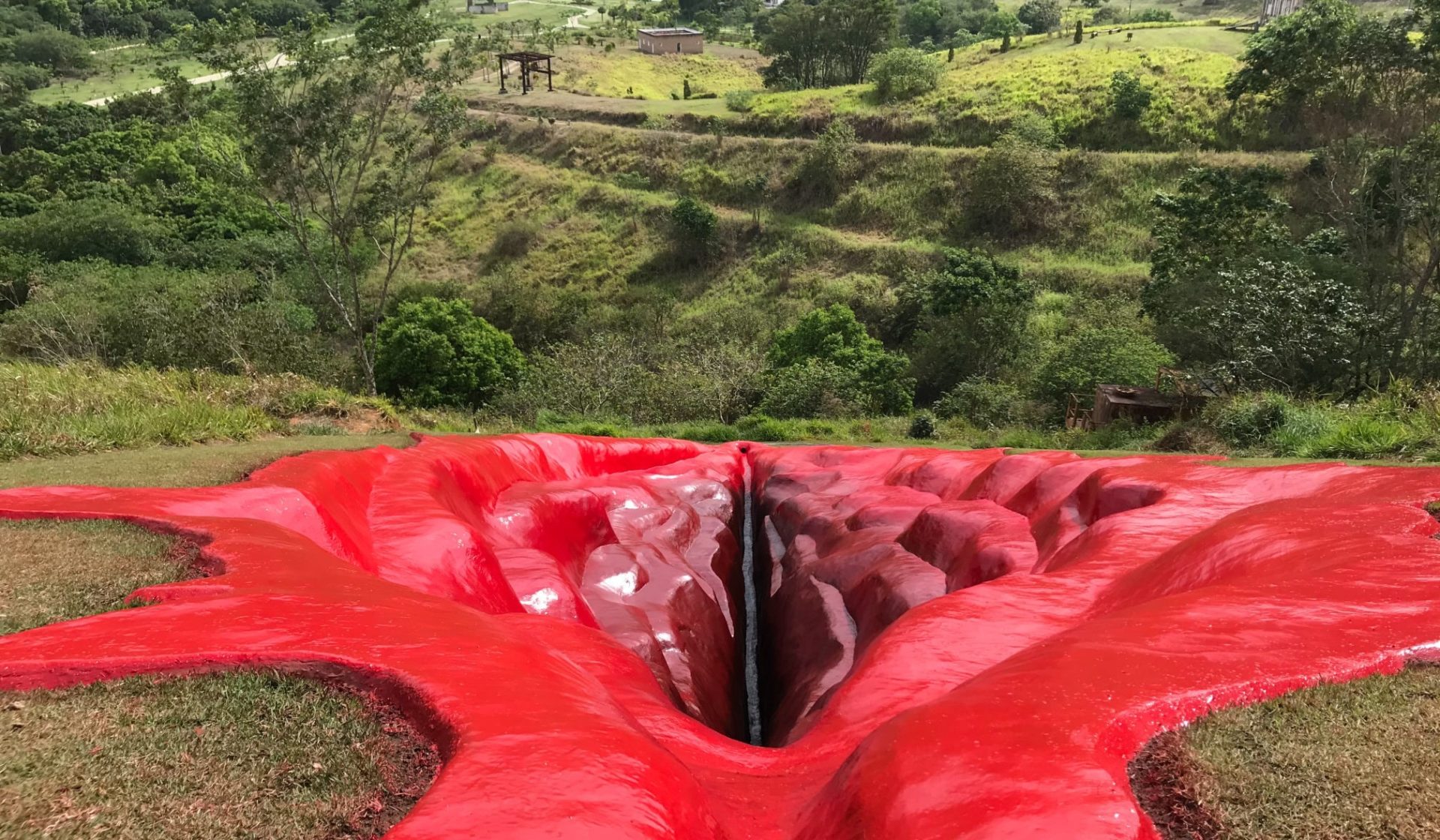Installed days after President Bolsonaro vowed never to legalise abortion in Brazil, Juliana Notari’s hillside artwork has divided the country.
Though we’re less than a week into 2021, it appears as though the prize for this year’s most controversial public sculpture has already been claimed. Sparking a fierce online debate between Bolsonaro-supporting right and the left-wing cultural community, Juliana Notari’s newly installed 33m-high concrete red vulva has been met with a mixture of criticism and praise.
Entitled ‘Diva’, the handmade sculpture – which took 11 months and ‘a lot of persistence, coexistence, and learning’ to create – was unveiled directly after the President vowed never to legalise abortion in Brazil. This was on the back of a recent historic moment for women’s rights in Argentina, which is now the third South American country to allow the practice by law.


‘Diva’ is situated at a rural park in the north-eastern state of Pernambuco, one of Brazil’s most culturally vibrant areas, and aims to provoke a conversation about the ‘problematisation of gender.’
This is according to Notari, a visual artist who describes her work as less about art than it is about human nature.
Addressing Bolsonaro’s latest comments, she believes that these problems are becoming too urgent to ignore any longer and hopes to change the perspective of relationships that create an ‘unequal and catastrophic world.’


Unfortunately, however, since taking office in 2019, Bolsonaro’s presidency has seen the cultural censorship of a number of minority groups including the LGBTQ+ community and Afro-Brazilians.
Deemed an ‘enemy of the arts,’ he has repeatedly portrayed artists – many of whom oppose his government – as ‘decadent spongers who milk public funds to peddle communist propaganda.’
It should come as no surprise, therefore, that ‘Diva’ has ignited fury among his supporters and Notari has since found her social media profiles deluged with a plethora of hateful rhetoric denouncing the sculpture as reprehensible. Flocking to twitter en masse to voice their ire, a large majority consider it an ‘eyesore’ and prolific US-based polemicist Olavo de Carvalho even weighed in with an especially heinous remark, writing it should be ‘dealt with’ by a ’33m-long penis.’






















